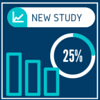Abstract
Anxiety disorders are common in adolescents (ages 12 to 18) and contribute to a range of impairments. There has been speculation that adolescents with anxiety are at risk for being treatment nonresponders. In this review, the authors examine the efficacy of cognitive-behavioral therapy (CBT) for adolescents with anxiety. Outcomes from mixed child and adolescent samples and from adolescent-only samples indicate that approximately two-thirds of youths respond favorably to CBT. CBT produces moderate to large effects and shows superiority over control/comparison conditions. The literature does not support differential outcomes by age: adolescents do not consistently manifest poorer outcomes relative to children. Although extinction paradigms find prolonged fear extinction in adolescent samples, basic research does not fully align with the processes and goals of real-life exposure. Furthermore, CBT is flexible and allows for tailored application in adolescents, and it may be delivered in alternative formats (i.e., brief, computer/Internet, school-based, and transdiagnostic CBT).
Kendall, C. P. & Peterman, S. J. (2015). CBT for adolescents with anxiety: Mature yet still developing. The American Journal of Psychiatry, 172(6). pp. 519-530. https://dx.doi.org/10.1176/appi.ajp.2015.14081061
